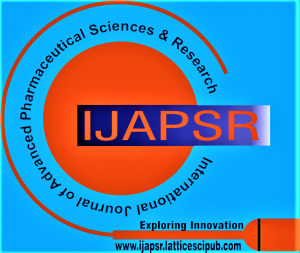![]()
Assessment of Knowledge and Practices Regarding Pediatric Paracetamol and Ibuprofen Use Among Syrian Parents: A Cross-Sectional Survey
Ali Fadel1, Abeer Zrika2, Maya Hmede3, Ayat Abbood4
1Ali Fadel, Student, Faculty of Pharmacy, University of Tishreen, Latakia, Syria.
2Abeer Zrika, Student, Faculty of Pharmacy, University of Tishreen, Latakia, Syria.
3Maya Hmede, Student, Faculty of Pharmacy, University of Tishreen, Latakia, Syria.
4Prof. Ayat Abbood, Department of Medicinal Chemistry and Quality Control, Faculty of Pharmacy, University of Tishreen, Latakia, Syria.
Manuscript received on 25 July 2025 | First Revised Manuscript received on 06 August 2025 | Second Revised Manuscript received on 19 September 2025 | Manuscript Accepted on 15 October 2025 | Manuscript published on 30 October 2025 | PP: 15-20 | Volume-5 Issue-6, October 2025 | Retrieval Number: 100.1/ijapsr.E408805050825 | DOI: 10.54105/ijapsr.E4088.05061025
Open Access | Editorial and Publishing Policies | Cite | Zenodo | OJS | Indexing and Abstracting
© The Authors. Published by Lattice Science Publication (LSP). This is an open-access article under the CC-BY-NC-ND license (http://creativecommons.org/licenses/by-nc-nd/4.0/)
Abstract: Paracetamol (acetaminophen) and ibuprofen are widely used for pediatric fever and pain management in Syria, but improper dosing and limited safety awareness pose significant risks. This study assessed Syrian parents’ knowledge, attitudes, and practices regarding these medications. An online survey was distributed via social media (March–July 2025), targeting Syrian parents. Data from 112 respondents were analyzed, focusing on demographics, medication usage patterns, dosing knowledge, awareness of side effects/contraindications, and information sources. %85 used paracetamol for fever; 71% used ibuprofen for pain/inflammation. Critical knowledge gaps existed: 67% lacked awareness of correct paracetamol dosing, and 87% were uninformed about ibuprofen’s side effects. Only 13% knew ibuprofen’s minimum age restrictions, and 48% were unaware of its contraindication in asthma. Non-professional sources (internet: 16%; family/friends: 14%) contributed to the dissemination of misinformation, although pharmacists were highly trusted (82%). %79 expressed interest in educational interventions. Syrian parents rely heavily on paracetamol/ibuprofen but lack essential safety knowledge, particularly for ibuprofen. Urgent, culturally tailored educational initiatives that leverage trusted pharmacists and digital tools are needed to mitigate the risks of medication errors in children.
Keywords: Paracetamol, Ibuprofen, Survey, Awareness, Syrians.
Scope of the Article: Pharmacy Practice
